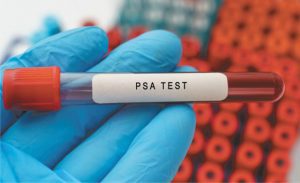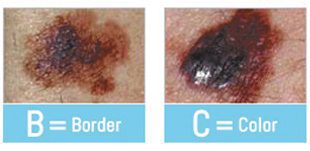

But it has certain limitations. Some men may find that the downsides of prostate cancer screening outweigh the potential benefits. Ultimately, whether to have a prostate cancer screening is something you should decide after discussing it with your physician, considering your risk factors, and weighing your personal preferences.
What is PSA?
Prostate-specific antigen (PSA) is a protein produced by both cancerous (malignant) and noncancerous (benign) prostate tissue. A small amount of PSA usually enters the bloodstream.
Prostate cancer cells usually make more PSA than do benign cells, causing PSA levels in your blood to rise.
Besides the PSA number itself, your doctor will consider several other factors to evaluate your PSA scores:
• Your age
• The size of your prostate gland
• How quickly your PSA levels are changing
• Whether you’re taking medications that affect PSA measurements, such as finasteride (Propecia, Proscar) and dutasteride (Avodart)
PSA testing is sometimes combined with a digital rectal exam (DRE) to feel the prostate for abnormalities. Additionally, an elevated PSA does not mean prostate cancer is present. Benign prostatic hyperplasia and inflammation of the prostate can raise the number. There are now diagnostic tools like the 4K Score blood test and Select MDx urine test that gives additional information. Urologists use these studies to define further who does and does not need a prostate biopsy.
Is the PSA Test Right for You?
Based on the best available evidence to date, the American Urological Association has released guidelines for PSA screening for prostate cancer. However, these guidelines continue to evolve and should be individualized to each patient. To date, the guidelines are:
• Men younger than age 50 without significant risk factors for prostate cancer should not have routine PSA tests.
• Men older than age 70 benefit the least from screening, and men with a less than ten-year life expectancy should not be screened.
• Men between age 50 and 69 stand to benefit the most from screening, and each should have an informed discussion about the benefits and harms before being offered this testing.
In addition to the above guidelines, emerging data show that men with risk factors or concerns for prostate cancer may get a baseline PSA between age 45 and 49 to predict their future significant prostate cancer risk. Additionally, screening should be more intensive in African American patients as they are at a statistically higher risk of developing life-threatening prostate cancer.
Personalizing Prostate Cancer Care
Our oncologists work with a team of medical professionals to design a personalized treatment plan tailored for you. Our centers are staffed with caring and highly qualified teams to provide you with the highest level of care throughout your treatment.
To learn more about GenesisCare, call (833) FOR-MYGC or visit genesiscare.com/us.
GLOBAL LEADERS IN CANCER CARE
Across the world, GenesisCare has more than 440 centers offering the latest approaches to cancer care, including modern technology and novel therapies. With more than 5,000 highly trained healthcare professionals and support staff globally, GenesisCare’s mission is to deliver exceptional treatment and care that enhances every aspect of your cancer journey.
Our dedicated healthcare professionals are committed to finding new and innovative ways to provide attentive care. Care that’s designed to fit around you and your life—care that treats you, not just your condition.
About Dr. Eric E. Coronato
Dr. Eric E. Coronato is Board Certified in Urology. He completed his Urology Residency at Albert Einstein Medical Center, Urology, Philadelphia, PA. His primary focus includes prostate procedures, kidney stones, male and female pelvic health procedures, and urologic cancers. Dr. Coronato is a member of the American Osteopathic Association. He treats patients in Port Charlotte and Punta Gorda, Florida.
About Dr. Marc A. Melser
Dr. Marc Melser completed his Urology Residency and Fellowship at Henry Ford Hospital in Detroit, MI. Dr. Melser manages all aspects of General Urology, such as kidney stones, low testosterone, benign prostate problems, and prostate cancer. He has lived and worked in Charlotte County since 1994. During that time, Dr. Melser served as the President of the Charlotte County Medical Society and as Chairman of Surgery for Fawcett Memorial Hospital and Bayfront Health Punta Gorda, Florida. Dr. Melser is a member of the American Urological Association, the American Medical Association, and the Florida Urological Society. He treats patients in Port Charlotte, Florida.
 Southwest Florida's Health and Wellness Magazine Health and Wellness Articles
Southwest Florida's Health and Wellness Magazine Health and Wellness Articles

